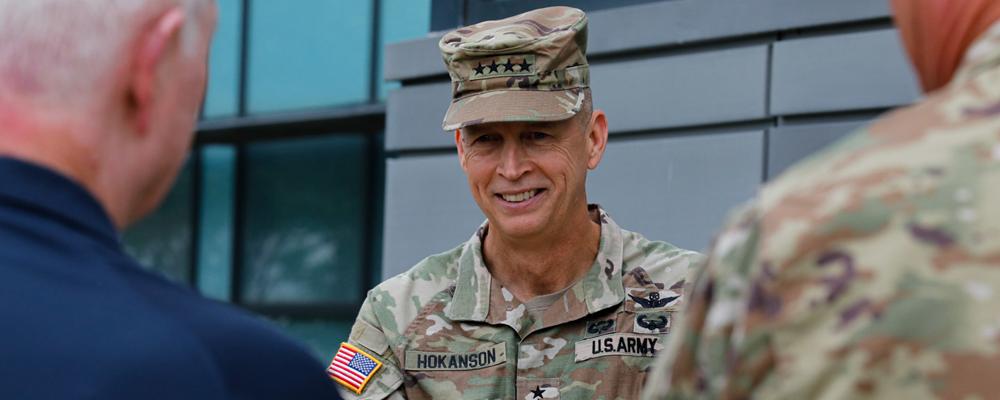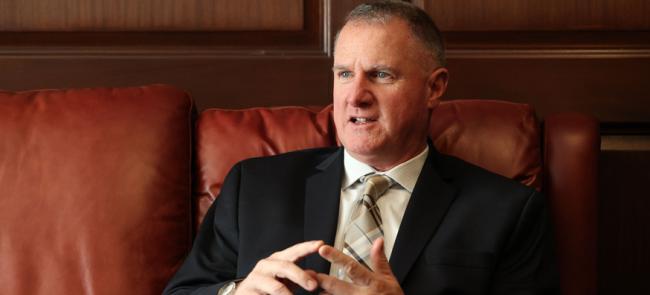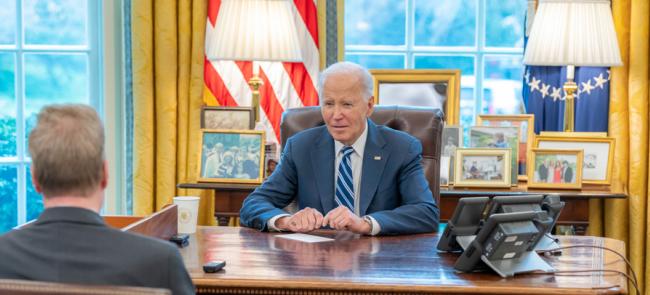
From the Chief: What I'm Reading
In my job, I do a lot of reading: reports, white papers, memos and more. You’ll find me reading in the car between events, at my desk between meetings and at lunch between bites. But even after a day full of reading, it seems I never have enough time to read everything I want to.
In elementary school, some of my favorite books were the Landmark Books series about the battles and events of World War II. Reading those books gave me a glimpse into military history and a deep respect and admiration for the heroes who fought those battles. They inspired me.
As I grew up and pursued this profession of arms, I learned — fast — reading about war is not a substitute for experiencing it, and nothing can fully prepare you for the realities of combat. But books can help shorten the learning curve.
We should never stop learning or trying to improve as leaders.
Reading helps us see things from different perspectives. When we consider others’ perspectives, we can begin to understand them. Through our understanding, we draw connections and think through consequences. It makes us better leaders. And reading and leading go hand in hand.
In an era when fewer people are reading books, turning to social media and video to gather information, I still think there’s value in old-fashioned reading material. There are so many great books out there, both fiction and nonfiction. Here are four I think are timeless classics.
Man’s Search for Meaning by Viktor E. Frankl
Frankl was an Austrian psychiatrist and Holocaust survivor who wrote about his experiences in Nazi concentration camps and how those experiences helped survivors find purpose in their lives. Of all the insight and wisdom Frankl offers in this book, one message stands out to me: “Live as if you were living already for the second time and as if you had acted the first time as wrongly as you are about to act now!” In other words, if you must make a decision, imagine you are already living with the consequences of that decision — so you can choose wisely the first time.
Lincoln on Leadership by Donald T. Phillips
This book looks at the leadership of our 16th president and offers practical insights on applying Abraham Lincoln’s approach to contemporary situations. One of my favorite ideas is, “When you are in deep distress and cannot restrain some expression of it, sit down and write out a harsh letter venting your anger. But don’t send it.” By taking out your aggression — but not taking it out on others — you get the benefit of speaking your mind, but not at the expense of your relationships.
Once an Eagle by Anton Myrer
Though today it’s required reading at West Point, I’ll admit I didn’t read this book until I was a four-star. Once an Eagle, the only fiction book on this list, is the story of two soldiers, Sam Damon and Courtney Massengale, following their careers and personal lives from the 1910s through the 1960s. Damon is a leader who inspires and prioritizes his people; he epitomizes selfless service. Massengale does quite the opposite. Together, they are a study in values — how to lead and how not to.
A Dawn Like Thunder by Robert J. Mrazek
Like the World War II series I loved so much as a kid, this book tells the heroic story of Torpedo Squadron Eight and its contributions to the Battles of Midway and Guadalcanal — critical victories in the Pacific theater. While A Dawn Like Thunder is full of well-researched historic detail, it never feels like a textbook. Instead, it captures the lives and personalities of the men in the squadron who made tremendous sacrifices, the tragic consequences of deploying with outdated equipment, and — like in Once an Eagle — show us both how to lead and how not to.
Whatever you like to read or study, I encourage you to find the time and make it a habit. We should never stop learning or trying to improve as leaders. We owe that to our soldiers, airmen and their families.
The author is the chief of the National Guard Bureau and a member of the Joint Chiefs of Staff.



